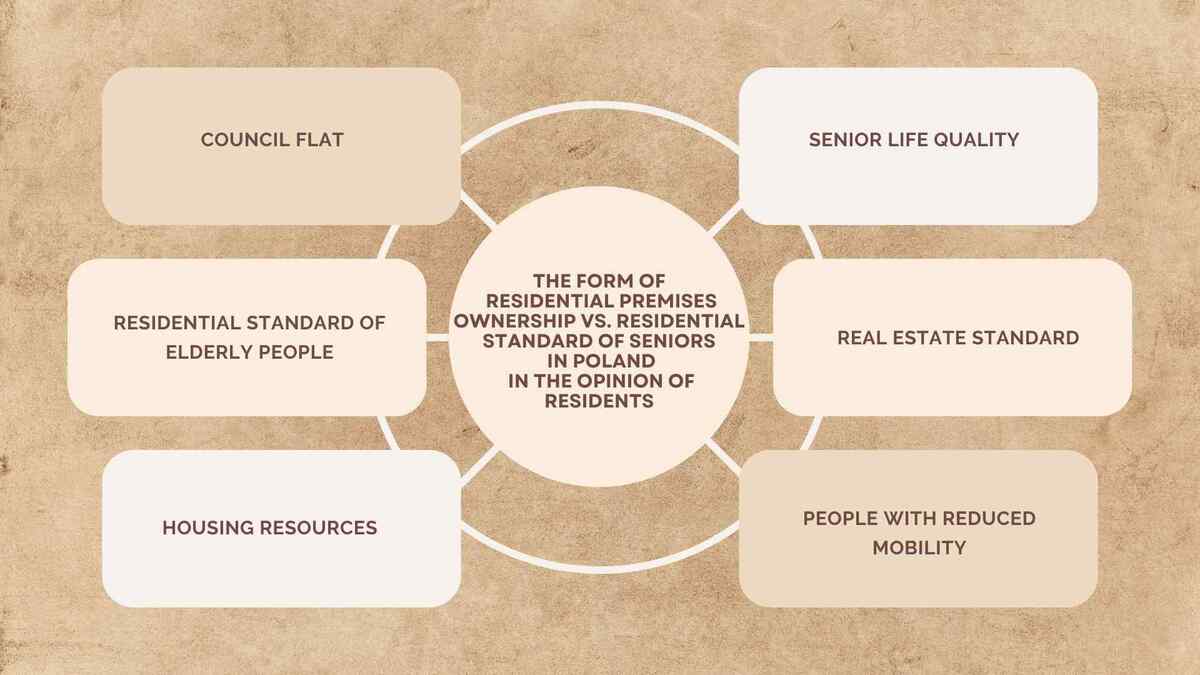Current issue
Online first
Archive
About the Journal
Aims and scope
Editorial Board
International Editorial Board
List of Reviewers
Abstracting and indexing
Ethical standards and procedures
REMV in Social Media
Contact
Instructions for Authors
Instructions for Authors
Manuscript formatting template
Title page
Highlights
Payments
‘Ghostwriting’ and ‘Guestauthorship’
Guidelines for Referees
The form of residential premises ownership vs. residential standard of seniors in Poland in the opinion of residents
1
Institute of Spatial Management, Wrocław University of Environmental and Life Sciences, Poland
Submission date: 2023-07-27
Final revision date: 2024-02-01
Acceptance date: 2024-02-14
Publication date: 2024-03-06
Corresponding author
REMV; 2024;32(1)
HIGHLIGHTS
- the standard of council flats is actually lower than that of condominiums and cooperative apartments
- the respondents’ readiness to change their apartment into a council flat adapted to their physical condition is hight (67%)
- the installation of mobility facilities for seniors, refer more often to cooperative apartments and condominiums than council flats
KEYWORDS
TOPICS
ABSTRACT
The study addresses the problem of diverse housing conditions experienced by seniors in Poland and equipping their apartments with installations improving the quality of life for people with reduced mobility, taking into account various forms of residential premises ownership: a condominium, a cooperative apartment and a council flat. The study aimed at providing answers to a number of questions, including: what is the readiness to change an apartment into a council flat adapted to the needs of people with mobility limitations, taking into account the current ownership status of the apartment (condominium, cooperative member’s ownership right to residential premises, the right to rent a flat from the council-owned housing resources).
The research was conducted in the cities of Wrocław and Jelenia Góra, located in Poland in the Lower Silesia Voivodship. A total of 208 people aged 50 and over were covered by the study. The authors found correlations between access to utilities and facilities in an apartment and the form of ownership of the dwelling. Among other things, the survey found that a toilet in the stairwell and the lack of central heating are much more common in communal apartments than in cooperative apartments and condominiums. Residents also pointed to the need to adapt bathrooms that are located in apartments. Tenants of public housing were also more likely to express a desire to adapt their apartments to the needs of people with limited mobility.
FUNDING
This work was supported by own founds of Wrocław University of Environmental and Life Sciences.
We process personal data collected when visiting the website. The function of obtaining information about users and their behavior is carried out by voluntarily entered information in forms and saving cookies in end devices. Data, including cookies, are used to provide services, improve the user experience and to analyze the traffic in accordance with the Privacy policy. Data are also collected and processed by Google Analytics tool (more).
You can change cookies settings in your browser. Restricted use of cookies in the browser configuration may affect some functionalities of the website.
You can change cookies settings in your browser. Restricted use of cookies in the browser configuration may affect some functionalities of the website.




